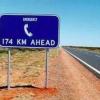Search the Community
Showing results for tags 'default'.
-
Matrix's AirCon control is always by default return to fresh air mode after you turned off your engine.. find that's it hell of inconvenient.. this DIY mod will be able to set the default to always closed at recycle mode. There is 2 step to be done, 1st is the air con control unit, 2nd is to reverse polarity of the aircon flap above the air con blower/filter. You'll need to remove the centre console 1st, refer to here for Removing Hyundai Matrix Centre Console http://www.mycarforum.com/forum/Asian_Make...cs%29_P2324088/ Here goes Part 1:- Insert the scrapper and pry open the plastic casing, pulling off the speed knob 1st will make it eassier to pry open Air Con main control unit Right Side Recycle Button with stock green LED Left side Air Con Button with stock green LED Desolder both LEDs from the back and pull out The LEDs including the plastic holder Stock Green LEDs with the plastic holder Prepare 820 ohm resistors and LEDs After removing the LEDs look for the 3 small holes on the recycle button (right side) Close up Insert a New LED with the positive (+ve) leg into the right hole (previously occupied by the stock negative(-ve) LED), and the -ve leg of the new LED into the the small centre hole below it. Pictures here show the new LEDs in place, leave the original +ve hole empty for the time being, you may wish to remain stock green LED, just follow the above step with the original LED instead of a new one.. Turn over the pcb board and solder the +ve, next solder the -ve leg to the ground on the pcb board. cut the resistor to shorter length insert the resistor to the empty +ve hole and solder next, solder the other end of the resistor to the +ve led of the new LED Next, insert a new LED into the left side of the pcb board of the air con control unit with the original polarity and solder it, cut away excess length after soldering If you wish to remain stock green LEDs, the above step no need to do... Whola you're done...happy DIYings... *disclaimer: this mod is for sharing, in no way will the poster be responsible for any mishap or damage done... :naughty: surface mount LEDs on my air con control... surface mount LEDs are damn small not easy to solder.. however it offers a consitant shade of White color... completed LED mod on my Air Con Control
-
https://asia.nikkei.com/Business/Markets/China-debt-crunch/Disappearance-of-deposits-triggers-distrust-in-Chinese-banks?utm_campaign=GL_one_time&utm_medium=email&utm_source=NA_newsletter&utm_content=article_link&del_type=3&pub_date=20220731093000&seq_num=8&si=44594 Disappearance of deposits triggers distrust in Chinese banks Scandal at a regional bank undermines confidence in entire system Customers of a rural Chinese bank have found that their deposits disappeared into thin air. (Source photos by Reuters/AP) NORIYUKI DOI, Nikkei staff writerJuly 27, 2022 13:45 JST SHANGHAI -- Customers of a rural Chinese bank have found that their deposits disappeared into thin air. Lies told by the lender, supposed to be under strict supervision of financial authorities, are inviting distrust and shaking public confidence in the country's banking system. The bank's call center kept giving false explanations to a typical customer. April 17: "Customers need to make a reservation by phone if they want to withdraw more than 100,000 yuan ($14,800) from their online account." April 18: "Our system is under renovation. Customers cannot withdraw their deposits until the work is complete." April 19: "There is no deposit record with the name, mobile phone number and ID number you've given." The lender in question is Yu Zhou Xin Min Sheng Village Bank, a small bank based in Xuchang, Henan Province, that serves rural populations. A man in Shanghai who had deposited 2 million yuan at the bank realized the grave nature of the problem on April 19, when a call center worker told him that his deposit didn't exist. Hardly believing what he had been told, he contacted the center two more times, only to get the same answer. He first learned of the bank, virtually unknown outside its home, when a friend told him it offered high interest rates. He opened an account via its official app, called Mini-programs, on the social media platform WeChat and put the 2 million yuan into the account -- or so he believed. "I thought I could withdraw the money immediately if the bank seemed to be in trouble," he said. People protest over the rural bank scandal outside a People's Bank of China building in Zhengzhou, Henan Province, on July 10. © Reuters Where has his money gone? An investigation by public security authorities in Xuchang found that the bank collected money illegally through "fake deposits." According to the authorities, a criminal group led by a mastermind named Lu Yi brought Yu Zhou Xin Min Sheng Village Bank and several other regional banks under their control through Henan Xincaifu Group Investment Holding from 2011. Lu also founded Junzheng Zhida Tech, whose main business is to develop banking systems, and had the company develop online systems for the lenders to enable them to accept deposits via the internet. The banks solicited "deposits" to their online services, but investigators believe they didn't actually put customers' money into their accounts. That was the reason the Shanghai man was told that his deposit didn't exist. The authorities in Xuchang say the banks transferred the money to Henan Xincaifu Group Investment Holding, disguising it as loans. Lu established another tech firm, Chenyu Information Technology, which tampered with the banks' data to conceal the illegal activities from authorities. The group had controlling stakes in five banks, all small and regional. But the misconduct affects 1 million people who have become unable to access deposits totaling 10 billion yuan, Chinese media Caixin reports. The unprecedented scandal is threatening to undermine China's banking system as a whole. "Debt has created a huge hole in the Bank of Nanjing's finances. I recommend customers withdraw their deposits," wrote Fu Mingfei, an analyst at the major Chinese brokerage Western Securities, on WeChat on June 30. His post went viral. The bank rejected Fu's argument as "malicious rumors," and his employer fired him. In the evening of July 3, public security authorities in Nanjing announced that they had penalized a 39-year-old man for "spreading false information on WeChat that posed negative impact on the Bank of Nanjing." After an analyst recommended that customers withdraw their deposits at the Bank of Nanjing, the bank called his viral post "malicious rumors." (Photo by Noriyuki Doi) According to the China Banking and Insurance Regulatory Commission, the ratio of nonperforming loans stood at 1.35% among large commercial banks at the end of March. The highest ratio is seen among rural commercial banks, at 3.37%. The government boasts of the financial health of lenders, but the assessment of bank assets is largely left to financial authorities' discretion. That is at the root of the unspecified public distrust in banks. One typical example is Baoshang Bank in Inner Mongolia, dissolved by the central government in 2020. The bank was effectively controlled by Tomorrow Holding, led by tycoon Xiao Jianhua, who went missing in Hong Kong in January 2017. Its ratio of nonperforming loans was 1.41% in 2015 and 1.68% in 2016. But as it concentrated its loans on Tomorrow Holding, the ratio surged to 98% by the time it was dissolved. More than 1,000 people held a protest on July 10 in Zhengzhou in Henan over the village bank scandal. The central government announced the following day that it would reimburse affected customers, and the rescue plan is expected to help calm the situation. But the fact that a criminal group controlled banks and authorities failed to detect the wrongdoing is shaking public confidence in the banking sector.
-
https://www.channelnewsasia.com/commentary/sri-lanka-economic-crisis-china-debt-trap-2626976?cid=FBcna&fbclid=IwAR3rVgAi-sCE5t3Emdlfnn_XszVT2i9AnrtVKcThOyxRyYFMp0qyb9JHueA MUMBAI: The island nation of Sri Lanka is in the midst of one of the worst economic crises it’s ever seen. It has just defaulted on its foreign debts for the first time since its independence, and the country’s 22 million people are facing crippling 12-hour power cuts and an extreme scarcity of food, fuel and other essential items, such as medicines. Inflation is at an all-time high of 17.5 per cent, with prices of food items such as a kilogram of rice soaring to 500 Sri Lankan rupees (US$1.56) when it would normally cost around 80 rupees (US$0.25). Amid shortages, one 400g packet of milk powder is reported to cost over 250 rupees (US$0.78), when it usually costs around 60 rupees (US$0.19). On Apr 1, President Gotabaya Rajpaksha declared a state of emergency. In less than a week, he withdrew it following massive protests by angry citizens over the government’s handling of the crisis. The country relies on the import of many essential items including petrol, food items and medicines. Most countries will keep foreign currencies on hand in order to trade for these items, but a shortage of foreign exchange in Sri Lanka is being blamed for the sky-high prices. IS SRI LANKA CRISIS BECAUSE OF CHINA RELATIONS? Many believe that Sri Lanka’s economic relations with China are the main driver behind the crisis. The United States has called this phenomenon “debt-trap diplomacy”. This is where a creditor country or institution extends debt to a borrowing nation to increase the lender’s political leverage – if the borrower extends itself and cannot pay the money back, they are at the creditor’s mercy. However, loans from China accounted for only about 10 per cent of Sri Lanka’s total foreign debt in 2020. The largest portion – about 30 per cent – can be attributed to international sovereign bonds. Japan actually accounts for a higher proportion of their foreign debt, at 11 per cent. Defaults over China’s infrastructure-related loans to Sri Lanka, especially the financing of the Hambantota port, are being cited as factors contributing to the crisis. But these facts don’t add up. The construction of the Hambantota port was financed by the Chinese Exim Bank. The port was running losses, so Sri Lanka leased out the port for 99 years to the Chinese Merchant’s Group, which paid Sri Lanka US$1.12 billion. So the Hambantota port fiasco did not lead to a balance of payments crisis (where more money or exports are going out than coming in), it actually bolstered Sri Lanka’s foreign exchange reserves by US$1.12 billion. So, what are the real reasons for the crisis? IMF LOANS COME WITH CHALLENGING CONDITIONS Post-independence from the British in 1948, Sri Lanka’s agriculture was dominated by export-oriented crops such as tea, coffee, rubber and spices. A large share of its gross domestic product came from the foreign exchange earned from exporting these crops. That money was used to import essential food items. Over the years, the country also began exporting garments and earning foreign exchange from tourism and remittances (money sent into Sri Lanka from abroad, perhaps by family members). Any decline in exports would come as an economic shock and put foreign exchange reserves under strain. For this reason, Sri Lanka frequently encountered balance of payments crises. From 1965 onwards, it obtained 16 loans from the International Monetary Fund (IMF). Each of these loans came with conditions including that, once Sri Lanka received the loan, it had to reduce its budget deficit, maintain a tight monetary policy, cut government subsidies for food for the people of Sri Lanka and depreciate the currency (so exports would become more viable). But usually, in periods of economic downturns, good fiscal policy dictates that governments should spend more to inject stimulus into the economy. This becomes impossible with the IMF conditions. Despite this situation, the IMF loans kept coming, and a beleaguered economy soaked up more and more debt. The last IMF loan to Sri Lanka was in 2016. The country received US$1.5 billion for three years from 2016 to 2019. The conditions were familiar, and the economy’s health nosedived over this period. Growth, investments, savings and revenues fell, while the debt burden rose. DID SRI LANKA GOVERNMENT MAKE FATAL MISTAKES? A bad situation turned worse with two economic shocks in 2019. First, there was a series of bomb blasts in churches and luxury hotels in Colombo in April 2019. The blasts led to a steep decline in tourist arrivals – with some reports stating up to an 80 per cent drop – and drained foreign exchange reserves. Second, the new government under President Gotabaya Rajapaksa irrationally cut taxes. Value-added tax rates (akin to some nations’ goods and services taxes) were cut from 15 per cent to 8 per cent. Other indirect taxes such as the nation-building tax, the pay-as-you-earn tax and economic service charges were abolished. Corporate tax rates were reduced from 28 per cent to 24 per cent. About 2 per cent of the gross domestic product was lost in revenues because of these tax cuts. In March 2020, the COVID-19 pandemic struck. In April 2021, the Rajapaksa government made another fatal mistake. To prevent the drain of foreign exchange reserves, all fertiliser imports were completely banned. Sri Lanka was declared a 100 per cent organic farming nation. This policy, which was withdrawn in November 2021, led to a drastic fall in agricultural production and more imports became necessary. But foreign exchange reserves remained under strain. A fall in the productivity of tea and rubber due to the ban on fertiliser also led to lower export incomes. Due to lower export incomes, there was less money available to import food and food shortages arose. Because there is less food and other items to buy, but no decrease in demand, the prices for these goods rise. In February 2022, inflation rose to 17.5 per cent. In all probability, Sri Lanka will now obtain a 17th IMF loan to tide over the present crisis, which will come with fresh conditions. A deflationary fiscal policy will be followed, which will further limit the prospects of economic revival and exacerbate the sufferings of the Sri Lankan people.
-
Went to BK for the first time in many years and saw the price displayed for the "value" meal price is the upsized price. Also, there is no value meal with normal sized fries and drink when I asked. Maybe I am suaku, but just to share for awareness.
- 37 replies
-
- burger king upsized
- burger
- (and 5 more)
-
SINGAPORE - The MediShield Life Scheme Bill tabled in Parliament on Monday gives wide-ranging powers to the administrator to access people's income and health status without explicit consent from them. Those who object to having such information accessed have the choice of opting out. However, those who do so will not be eligible for income-related subsidies for their premiums, nor can they be automatically given a clean bill of health. The Bill also gives the national insurance administrator the same powers as that of the Inland Revenue Authority of Singapore to recover unpaid premiums, such as through employers or banks. Such powers are needed because defaults on premiums by people who can afford to pay them will mean a heavier load on other policy holders. Full premiums are payable even by Singaporeans and permanent residents living overseas for long periods. MediShield Life, which will replace the current MediShield when it starts at the end of this year, will cover everyone regardless of whether they are healthy or sick, for their entire life. Coverage will be higher with lower co-payments and no lifetime claim caps but premiums will be higher than the current scheme. Massive government aid, to the tune of $4 billion over five years, will make it highly affordable, the Government has assured. This includes the transitional subsidies which will be given to everyone, rich or poor, for the first four years. On top of that, two in three people will also get 15-50 per cent permanent subsidies on their premiums. The need to access incomes is to make it easy to identify people who qualify and the amount of subsidy they are entitled to. Additional help will be given to those who still can't afford the premiums. For the majority, the higher premiums will be entirely covered by Medisave, with the extra 1 per cent in Medisave contribution from employers that takes effect this month. People who are currently not covered by MediShield and have pre-existing illness will need to pay 30 per cent additional premiums per year for 10 years, after which they revert to paying the normal premiums for their age band. To simplify the procedure of identifying people with existing serious illnesses, such as cancer or heart disease, the administrator will have access to hospital data on all Singaporeans and permanent residents. The Bill also sets out the various penalties for defaulting on payments, providing false information, or wrongfully disclosing information obtained under the authority of the MediShield Life Scheme. For example, a defaulter who tries to leave the country without paying or providing security, as well as officials who wrongfully disclose information, can be fined $5,000, jailed for up to a year or both. The penalty for obstructing investigation into offences under the Bill is heavier with a maximum of $20,000 fine and a year's jail. The Bill also provides for a MediShield Life Council which can review the policy and parameters and recommend changes to the Health Minister to ensure that it continues to provide effective protection to citizens. The Council, which will likely comprise experts from people, private and public sectors, also has overview of the administration of the scheme. Dr Chia Shi Lu, head of the Government Parliamentary Committee for Health, said he supports the implied consent to verify personal details, as there is provision to refuse access. He said: "There has been quite a lot of feedback from Singaporeans, and particularly from the elderly, who are unhappy with government agencies repeatedly requesting personal and financial information from them in order to qualify for any number of government schemes." He and his parliamentary colleagues have often been asked why government agencies do not share information - as will now be done with MediShield Life. - See more at: Parliament: MediShield Life Scheme Bill gives wide-ranging powers to administrator - Singapore Health News & Top Stories - The Straits Times
- 6 replies
-
- 1
-

-
- medishield life
- default
- (and 7 more)
-
In USA, the car loan company is able to disable the car if the car instalment is not paid on time. Coming here soon? I think not likely . . . http://seattletimes.com/html/localnews/2024625051_carpaymentsxml.html The thermometer showed a 103.5-degree fever, and her 10-year-old’s asthma was flaring up. Mary Bolender, who lives in Las Vegas, needed to get her daughter to an emergency room, but her 2005 Chrysler van would not start. The cause was not a mechanical problem — it was her lender. Bolender was three days behind on her monthly car payment. Her lender, C.A.G. Acceptance of Mesa, Arizona, remotely activated a device in her car’s dashboard that prevented her car from starting. Before she could get back on the road, she had to pay more than $389, money she did not have that morning in March. “I felt absolutely helpless,” said Bolender, a single mother who stopped working to care for her daughter. It was not the only time this happened: Her car was shut down that March, once in April and again in June. This new technology is bringing auto loans — and Wall Street’s version of Big Brother — into the lives of people with credit scores battered by the financial downturn. Auto loans to borrowers considered subprime, those with credit scores at or below 640, have spiked in the last five years. The jump has been driven in large part by the demand among investors for securities backed by the loans, which offer high returns at a time of low interest rates. Roughly 25 percent of all new auto loans made last year were subprime, and the volume of subprime auto loans reached more than $145 billion in the first three months of this year. But before they can drive off the lot, many subprime borrowers like Bolender must have their car outfitted with a so-called starter interrupt device, which allows lenders to remotely disable the ignition. Using the GPS technology on the devices, the lenders can also track the cars’ location and movements. The devices, which have been installed in about 2 million vehicles, are helping feed the subprime boom by enabling more high-risk borrowers to get loans. But there is a big catch. By simply clicking a mouse or tapping a smartphone, lenders retain the ultimate control. Borrowers must stay current with their payments, or lose access to their vehicle. “I have disabled a car while I was shopping at Wal-Mart,” said Lionel M. Vead Jr., the head of collections at First Castle Federal Credit Union in Covington, Louisiana. Roughly 30 percent of customers with an auto loan at the credit union have starter interrupt devices. Now used in about one-quarter of subprime auto loans nationwide, the devices are reshaping the dynamics of auto lending by making timely payments as vital to driving a car as gasoline. Seizing on such technological advances, lenders are reaching deeper and deeper into the ranks of Americans on the financial margins, with interest rates on some of the loans exceeding 29 percent. Concerns raised by regulators and some rating firms about loose lending standards have disturbing echoes of the subprime-mortgage crisis. As the ignition devices proliferate, so have complaints from troubled borrowers, many of whom are finding that credit comes at a steep price to their privacy and, at times, their dignity, according to interviews with state and federal regulators, borrowers and consumer lawyers. Some borrowers say their cars were disabled when they were only a few days behind on their payments, leaving them stranded in dangerous neighborhoods. Others said their cars were shut down while idling at stoplights. Some described how they could not take their children to school or to doctor’s appointments. One woman in Nevada said her car was shut down while she was driving on the freeway. Beyond the ability to disable a vehicle, the devices have tracking capabilities that allow lenders and others to know the movements of borrowers, a major concern for privacy advocates. And the warnings the devices emit — beeps that become more persistent as the due date for the loan payment approaches — are seen by some borrowers as more degrading than helpful. “No middle-class person would ever be hounded for being a day late,” said Robert Swearingen, a lawyer with Legal Services of Eastern Missouri, in St. Louis. “But for poor people, there is a debt collector right there in the car with them.” Lenders and manufacturers of the technology say borrowers consent to having these devices installed in their cars. And without them, they say, millions of Americans might not qualify for a car loan at all. A virtual repo man From his office outside New Orleans, Vead can monitor the movements of about 880 subprime borrowers on a computerized map that shows the location of their cars with a red marker. Vead can spot drivers who have fallen behind on their payments and remotely disable their vehicles on his computer or mobile phone. The devices are reshaping how people like Vead collect on debts. He can quickly locate the collateral without relying on a repo man to hunt down delinquent borrowers. Vead says that first, he tries reaching a delinquent borrower on the phone or in person. Then, only after at least 30 days of missed payments, he typically shuts down cars when they are parked at the borrower’s house or workplace. If there is an emergency, he says, he will turn a car back on. None of the borrowers or consumer lawyers interviewed by The New York Times raised concerns about the way Vead’s credit union uses the devices. But other lenders, they said, were not as considerate, marooning drivers in far-flung places and often giving no advance notice of a shut-off. Lenders say that they exercise caution when disabling vehicles and that the devices enable them to extend more credit. Without the use of such devices, said John Pena, general manager of C.A.G. Acceptance, “we would be unable to extend loans because of the high-risk nature of the loans.” A leading device maker, PassTime of Littleton, Colorado, says its technology has reduced late payments to roughly 7 percent from nearly 29 percent. Spireon, which offers a GPS device called the Talon, has a tool on its website where lenders can calculate their return on capital.
-
http://www.channelnewsasia.com/news/singapore/negligent-drivers-who/1345462.html?cid=FBSG Finally, stiffer laws for negligent driving that causes death
- 34 replies
-
- 6
-

-
- negligent driving
- default
- (and 5 more)
-
what do you guys think of this development? i personally feel that it's a change in the positive direction, considering the gravity of the consequence, i.e. death. having said that, it's fair to say that there'll also be those situations where, e.g. the jaywalker's gross negligence may be the primary cause of his/her own death and it has to be then investigated and proven in court. p/s - a car cam is becoming more important - i got to stop procrastinating and get the damn thing installed. ------------------------------------------ Court: No more default fines for negligent drivers 20/05/2014 on mypaper http://news.omy.sg/News/Local-News/story20140520-264376 A SPECIAL court of three judges, led by Chief Justice Sundaresh Menon, yesterday overthrew a longstanding sentencing practice of imposing fines for causing death by negligent driving. "It is important to signal to other drivers that they must be mindful of the terrible risks they take upon themselves and other road users when they drive when not fit to do so," said CJ Menon. The court made the ruling as it allowed the prosecution's appeal and handed down a four-week jail term to 27-year-old Hue An Li, a sleep-deprived driver who crashed her car into a lorry carrying foreign workers in March last year. The impact caused all nine workers seated in the back to be flung out, killing one on the spot. Last September, Hue, a casino surveillance officer, pleaded guilty to causing death by a negligent act and was fined the maximum $10,000 and banned from driving for five years. The prosecution appealed to the High Court, arguing that she should be jailed for her "gross negligence" in driving after she had not slept in 24 hours. Under the law, the offence carries a jail term of up to two years, or a fine, or both. But, generally, the courts have imposed fines. In a 1993 case, former CJ Yong Pung How ruled that if death was caused by a negligent act, a fine would suffice in most cases. In Hue's case, the district judge, explaining why he gave her a fine instead of jail, cited the 2012 case of Ng Jui Chuan, who fell asleep at the wheel and hit an elderly couple in Upper Thomson Road in November 2009. Mr Ng's $9,500 fine was upheld by a High Court judge, who said that driving when one is tired or sleepy is not an offence, but might be one if it had been proved that the tired driver knew he would likely fall asleep at the wheel, and yet drove. But, yesterday, CJ Menon said these cases have to be viewed with caution and that the sentencing precedents were "unreliable". He noted that the law was redrafted in 2008. After this, he said, there was no basis to continue on the premise that when death was caused by negligence, the default sentence is a fine. As for the case of Mr Ng, CJ Menon said this should not be seen as an appropriate sentencing precedent as the remarks of the High Court were in the context of the line between a rash and a negligent act. The appeal, heard yesterday by the Chief Justice, Judge of Appeal Chao Hick Tin and Judicial Commissioner Tan Siong Thye, was the first magistrate's appeal presided over by three judges instead of the usual one judge. [email protected]
- 16 replies
-
- 3
-

-
- alfa romeo
- court
- (and 4 more)
-
Given the numbers, the market is anticipating US not to default. If US defaults, China is going to be really mad......and Singapore is not too far off either because of owning so much US Treasury Securities Pretty exciting huh
-
As we know, our overprice properties are highly leveraged. In the worst case scenario of US default that carries on for a long period, I cannot imagine the consequences. From my limited understanding, upon default, US banks will not be paid. In fact everybody Uncle Sam owes will not be paid. Vaults will empty. There will be a run on the banks to withdraw their money. The banks on the other hand will try to source hard currency from whereever they can. Borrowing costs will skyrocket. Banks will recall all loans if possible. If you default on your payments, they will repossess your homes. Only HDB-loans will be safe. Eventually money supply will tighten in Singapore and interest costs will rise. Now here is the kliller. Economy grinds to a halt. Valuations plummet. Everybody will be sitting on negative equity. Banks will want you to recapitalise. Will MAS strenghten the S$ then to slow down the US$ exodus? For the man in the street, no job, no $$ what happens? Will this scenario pan out?
-
as expected after the wayang show....the gravy train rolls on ----- Obama announces agreement to avoid debt default Posted: 01 August 2011 0859 hrs WASHINGTON: US President Barack Obama announced late Sunday that he and top lawmakers had reached an 11th-hour deal to avert a disastrous debt default that would have sown chaos in the world economy. "I want to announce that the leaders of both parties in both chambers have reached an agreement that will reduce the deficit and avoid default, a default that would have had a devastating effect on our economy," Obama said in hastily announced remarks at the White House. In the US Congress, leaders of the Democratic-held Senate and the Republican-led House of Representatives said they would present the framework to their rank-and-file on Monday ahead of final votes to approve the deal. "We're not done yet: I want to urge members of both parties to do the right thing and support this deal with your votes over the next few days," Obama said, with time running short before a midnight Tuesday (0400 GMT Wednesday) deadline. The US government hit its debt limit on May 16 and has used spending and accounting adjustments, as well as higher-than-expected tax receipts, to continue operating normally -- but can only do so through August 2. Business and finance leaders have warned default would send crippling aftershocks through the fragile US economy, still wrestling with stubbornly high unemployment of 9.2 per cent in the wake of the 2008 global meltdown. Without a deal, the US government would have to cut an estimated 40 cents out of every dollar it spends, forcing grim choices between defaulting or cutting back programs like those that help the poor, disabled and elderly.
-
Matrix's AirCon control is always by default return to fresh air mode after you turned off your engine.. find that's it hell of inconvenient.. this DIY mod will be able to set the default to always closed at recycle mode. There is 2 step to be done, 1st is the air con control unit, 2nd is to reverse polarity of the aircon flap above the air con blower/filter. First remove the aircon control unit.. refer to here :How to remove Centre Console Here goes Part 1:- Insert the scrapper and pry open the plastic casing, pulling off the speed knob 1st will make it eassier to pry open Air Con main control unit Right Side Recycle Button with stock green LED Left side Air Con Button with stock green LED Desolder both LEDs from the back and pull out The LEDs including the plastic holder Stock Green LEDs with the plastic holder Prepare 820 ohm resistors and LEDs After removing the LEDs look for the 3 small holes on the recycle button (right side) Close up Insert a New LED with the positive (+ve) leg into the right hole (previously occupied by the stock negative(-ve) LED), and the -ve leg of the new LED into the the small centre hole below it. Pictures here show the new LEDs in place, leave the original +ve hole empty for the time being, you may wish to remain stock green LED, just follow the above step with the original LED instead of a new one.. Turn over the pcb board and solder the +ve, next solder the -ve leg to the ground on the pcb board. cut the resistor to shorter length insert the resistor to the empty +ve hole and solder next, solder the other end of the resistor to the +ve led of the new LED Next, insert a new LED into the left side of the pcb board of the air con control unit with the original polarity and solder it, cut away excess length after soldering If you wish to remain stock green LEDs, the above step no need to do... Whola you're done...happy DIYings... *disclaimer: this mod is for sharing, in no way will the poster be responsible for any mishap or damage done... :naughty: surface mount LEDs on my air con control... surface mount LEDs are damn small not easy to solder.. however it offers a consitant shade of White color... completed LED mod on my Air Con Control
-
Hi all, I am looking at a used 2005 cefiro 230JM but it does not come with a proper hedunit and speakers. Seems that previous owner has taken all away. Can previous owners or anyone advise what is the default headunit that came with the 2005 Cefiro 230JM pls? Also, what type of speakers are provided? I thought I read somewhere saying that they were bose speakers. Lastly, where are the 6 speakers located? 2 in front, 2 in pasenger and the last 2? Thanks alot if you could help answer my queries.
-
gd day to all...jus wish to enquire as my colleague asked me if he defaulted on his in house car loan for 2-3mths already, will they tow away his car at his residential address or whats the procedure like? i couldnt advice him as mine was through bank loan..anyone similar situation?
-
I had just typed a long PM in reply to someone's msg, then after sending I thought there was an error as it did not showed up in the Sent Items. Later I realized that there is this checked box 'Add a copy of... to my sent items folder', which somehow by default is not enabled when replying to PMs. I think it is better that it be checked by default. I thought that is the default actions of many forums and email programs. Some users, like me, will forget or miss out on that box, and after sending out, thought the PM was not sent successfully (I retyped the long message again as I thought it wasn't sent out). Thanks.
-
I guess all Spectra owner know that the Air-Con intake Selection is by default set to taking from the air outside instead of letting the air-con circulating within the car, anyone have any comments or solutions to that? Any where I can get those mechanics to set it by default to let the air-con circulate within the car instead of everytime start the car got to select it myself? Please do give me advice and help, thanks!













